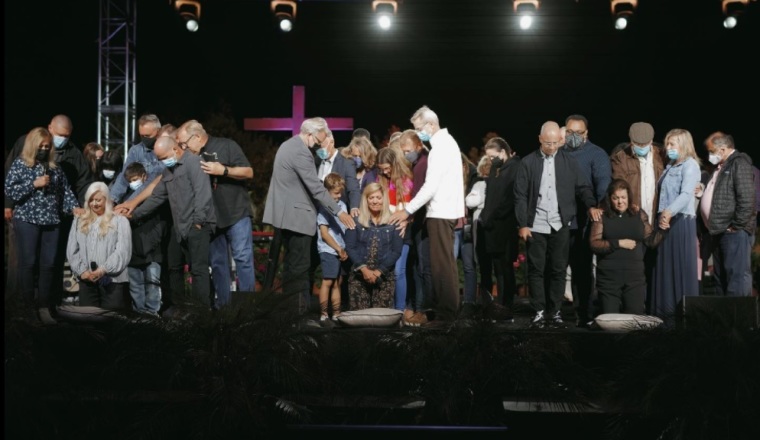Southern Baptist theologians have published a statement clarifying the meaning of the word “pastor” amid controversy within the United States’ largest Protestant denomination stemming from Rick Warren’s Saddleback Church ordaining female pastors last year.
The document “A Statement Concerning the Baptist Faith & Message and the Word’ Pastor'” was released last week by two Southern Baptist seminary presidents and the former head of the denomination’s public policy arm.
The signatories are Albert Mohler, president of The Southern Baptist Theological Seminary; Chuck Kelley, president of New Orleans Baptist Theological Seminary; and Richard Land, who served as the president of the Ethics & Religious Liberty Commission from 1988-2013 and is the president emeritus of Southern Evangelical Seminary in North Carolina. The Confession Revision Committee assigned the three men to write a study guide for the new 2000 Baptist Faith & Message Confession.
Aiming to bring clarity to a fractious debate within SBC life, the theologians said that when it comes to the word “pastor,” Southern Baptists have always understood the term.
In keeping with the spirit of Baptist Faith and Message 2000, “pastor” means “one who fulfills the pastoral office and carries out the pastor’s functions.”
Article VI of The Baptist Faith and Message 2000 states that the scriptural offices are pastors and deacons and that “[w]hile both men and women are gifted for service in the church, the office of pastor is limited to men as qualified by Scripture.”
The function of the office and the office itself are inseparable, the three Baptist leaders maintained. They highlighted that the commentary they wrote on the 2000 Baptist Faith & Message notes that central to that pastoral role is “the responsibility to preach and teach.”
“[I]t is important to understand that the word pastor was chosen precisely because of its clarity among Southern Baptists. The statement carefully affirms that both men and women are gifted for service in the church, but the role of pastor is biblically defined and is to be held only by men as qualified by Scripture,” they reiterated in the new statement.
When the Baptist Faith & Message was adopted and revised in 2000, the committee established that “pastor” was not to be used to describe every ministerial position within a church, they added.
Unlike other denominations with a hierarchical ecclesiastical structure, in Baptist ecclesiology, the local church calls and ordains its pastors, not the denomination as a whole or its affiliated entities.
While the debate over what the Bible says about who is qualified to serve in a pastoral role is not new, the issue resurfaced at this year’s annual SBC meeting in Anaheim, California. Many considered Saddleback’s recent ordinations of female “pastors” contravening the Baptist Faith & Message 2000.
In remarks from the floor of the annual meeting in June, Warren, the outgoing pastor of the Southern California megachurch, appealed to the denomination to stop fighting over the issue and that the subject is not a first-order doctrine.
“As Western culture grows more dark, more evil, and more secular, we have to decide: Are we going to treat each other as allies or adversaries?” Warren asked.
“Are we going to keep bickering over secondary issues, or are we going to keep the main thing the main thing?”
Discussion of the issue, the theology surrounding it and whether to disaffiliate Saddleback Church from the SBC was ultimately tabled to a later date. It was sent to the convention’s credentials committee for further study.
Broadly speaking, those who oppose women being ordained as lead pastors are known as “complementarians” and believe that certain offices within the church are restricted to men. While espousing complementarian theology, there are others who believe that only the office of “senior pastor” is limited to men.
By contrast, “egalitarians” believe that the specific scriptures that appear to restrict the pastoral office to men are not universal blanket restrictions.
Land, one of the men involved in issuing the statement, is the executive editor of The Christian Post. He said in an interview Monday that “it should be remembered that this is a debate about ecclesiology, not soteriology, and should be treated as such in discussion among brothers and sisters in Christ.”
The Christian Post

